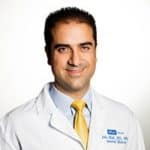Think doctor notes and what comes to mind for many patients might be indecipherable notes scrawled on paper or an electronic medical record update written so physicians can understand it—but not everyone else.
But if patients had more direct access to electronic physician notes and could add their comments to the body of notes before—and after—a doctor visit, some hospitals and healthcare researchers believe that interaction could solve big problems, such as patients disregarding medical advice, not returning for follow-up care or failing to renew their prescriptions.
The idea is that better patient compliance could reduce healthcare costs, such as by cutting into the estimated $300 billion spent on avoidable hospital readmissions and other related treatments, according to the National Institutes of Health.
Beginning in January four academic hospitals—Harvard Medical School/Beth Israel Deaconess Medical Center in Boston, University of Washington in Seattle, Dartmouth-Hitchcock Medical Center in Lebanon, New Hampshire, and University of Colorado in Boulder—will begin work on a new digital healthcare tool called OurNotes aimed at getting patients more involved with their doctors and being more proactive in follow-up care.
OurNotes provides templates and software modules that can be linked to another digital tool called OpenNotes, which provides patients online access to doctors’ notes in their electronic medical records.
OpenNotes was launched in 2010 by Harvard Medical Teaching Hospital and Beth Israel Deaconess Medical Center. Today more than 20 million patients nationwide can read their doctors’ notes through OpenNotes at big hospitals such as Geisinger Health System in rural Pennsylvania, Harborview Medical Center in Seattle, the Veteran’s Administration in Washington, D.C., and Rush University Medical Center in Chicago.
The latest initiative—OurNotes—enables patients to add comments to their digital doctors’ notes and updates prior to their next appointment, says Dr. John Mafi, assistant professor of medicine in the division of general internal medicine and health services research at the David Geffen School of Medicine at UCLA. “Today with OpenNotes patients have electronic access to read doctor notes but that’s a passive process,” Mafi says. “OurNotes is a way to make doctor notes into a more proactive dialogue between doctor and physician.

John Mafi
Beth Israel Deaconess Medical Center received a $450,000 grant from the Robert Woods Johnson Foundation to develop the first software modules and framework for OurNotes. Now Harvard Medical School/Beth Israel Deaconess Medical Center, University of Washington, Dartmouth-Hitchcock Medical Center and University of Colorado will take and pilot the first version of OpenNotes.
The four health systems will use OurNotes to contact patients before an upcoming visit and ask them to review previous notes, provide a summary of what’s been happening between office visits and list what they hope to address when seeing their doctor.
“This is an invitation to get the patient to contribute more and set the agenda for talking to their doctor,” Mafi says.
The four hospitals will conduct the OpenNotes pilot program for about a year, collect and analyze the quantity and quality of the exchanges between patients and doctors and publish a study, Mafi says.
“The results and the study will give us some data and insight on what to do next,” Mafi says. “If executed thoughtfully, OurNotes has the potential to reduce documentation demands on clinicians, while having both the patient and clinician focusing on what’s most important to the patient.”
Keep up with latest coverage on digital healthcare by signing up for Internet Health Management News today.
Favorite